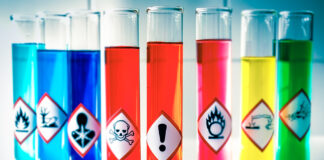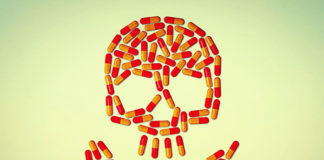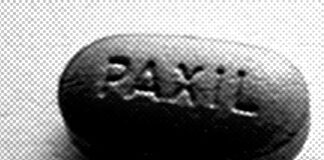Tag: neurotoxicity
Connecting the Dots: My Toxic Workplace Made Me “Mentally Ill”
In 1996, I suffered my first manic episode. My mother was convinced it had been caused by chemical exposure. But I wouldn’t hear it, and neither would my psychiatrists.
Iatrogenic Domino: I Was Poisoned by Polypharmacy
I did not suddenly develop some perverse form of mental illness out of thin air. I was a victim of repeated misdiagnoses, unrecognized adverse drug reactions/drug toxicity, and profound polypharmacy.
What Should We Really Call Psychiatric Drugs?
There is no rational way to argue against putting psychiatric chemicals into the category of neurotoxins. All psychiatric substances alter “the structure or functions of the nervous system,” disrupt “the normal function of nerve cells” and act “specifically on nervous tissue.” It is time to clean up the misleading mess of words in psychiatry.
The Loneliness of Having an Illness Science Doesn’t Understand
In this interview for Science of Us, science writer Julie Rehmeyer tells of her struggles with chronic fatigue syndrome, including how the medical system failed her...
Is Society or Psychiatry to Blame for the “Seriously Mentally Ill”...
Adults in the U.S. diagnosed with “serious mental illness” die on average 25 years earlier than others. This is not controversial, as establishment psychiatry and its critics agree. What is controversial is who is to blame?
Antidepressants Increase the Risk of Suicide and Violence at All Ages
Although the drug industry, our drug regulators and leading psychiatrists have done what they could to obscure these facts, it can no longer be doubted that antidepressants are dangerous and can cause suicide and homicide at any age.
What’s the Harm in Taking an Antidepressant?
We know that all drugs have side effects. That’s just part of the deal right? But is it really possible that an antidepressant can cause a sane person to act like a cold-blooded criminal?
$11.9 Million Paxil Suicide Verdict: The Inside Story
The judicial system and the public are becoming increasingly aware of the hazards of psychiatric drugs, including their capacity to make people behave in ways that are harmful to themselves and others, and contrary to their past behavior and character.
Prescribing Antidepressants for Girls: Intergenerational Adverse Consequences
Children exposed to SSRIs during pregnancy, a recent study shows, were diagnosed with depression by age 14 at more than four times the rate of children whose mothers were diagnosed with a psychiatric disorder but did not take the medication. Such reports are usually met, appropriately, with an outpouring of reassurances from clinicians who take care of pregnant women, who need to protect their emotional wellbeing in whatever way they can. From my perspective as a pediatrician specializing in early childhood mental health our attention must be on prevention.
Chemicals Have Consequences: Antidepressants, Pregnancy, and the New York Times
Depressed pregnant women need good care. They should not be made to feel guilty for the choices they make concerning their depression or lectured to by those who don’t understand the area or lack compassion for them. In that sense, Andrew Solomon does the public a service by turning his attention and writing talents to the topic of depression and pregnancy this week in the New York Times. However, a crucial part of providing good care to depressed pregnant women is to give them accurate information on the topic. In this sense, Andrew Solomon falls short.

















